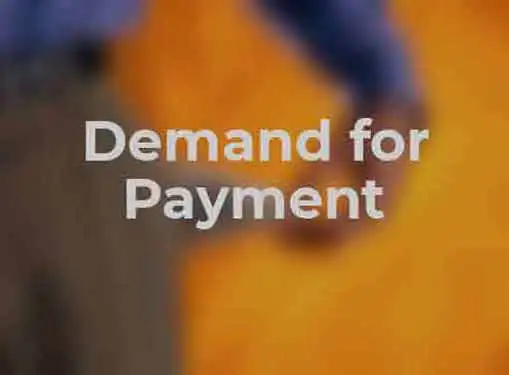Legal Information for Entrepreneurs
Demand For Payment
You've made the sale and delivered the merchandise, but now you're having a hard time getting paid for it. So far, collection efforts have been a bust. Now what? Maybe it's time to send a formal Demand for Payment.
Collections are no fun. You didn't go into business to spend your time trying to collect delinquent payments from deadbeat customers.

But unfortunately, collections are taking up more and more of your time. If you've tried everything you can think of with a handful of problem customers, it could be time to send a Demand for Payment letter.
Demand for Payment letters are essentially a last chance for customers to make good on their commitments. That means they should be reserved as a last resort and preceded by a series of other attempts to collect delinquent payments. Friendly reminders, collection letters, collection calls and other strategies should be employed before you pull the trigger on a Demand for Payment.
In the area of collections, persistence pays off. The majority of your past due accounts will either pay their balance or make other arrangements long before the situation reaches its final stage. But when all other collection efforts have failed, don't hesitate to send a final Demand for Payment letter.
What is it?
A Demand for Payment letter is the customer's final notice and your last chance to collect the payment on your own. If the customer still refuses to make payment or possibly make arrangements for installment financing, your relationship with the customer will enter a legal phase. Typically, neither the business nor the customer believes the Demand for Payment will resolve the problem. So from your perspective, this letter lays the groundwork for legal action.
When should it be sent?
In short, a final Demand for Payment letter should be sent when other collection efforts have been exhausted. Whatever you do, don't try to take a shortcut and send a Demand for Payment letter early in the collection process. It's important to establish a history of reasonable collection effort before you pull the plug on the relationship.
What information does it contain?
A good Demand for Payment letter is succinct, but careful to include relevant facts and deadlines. It should briefly reference the invoice number and prior collection attempts as well as the amount owed and the final deadline before the matter is handed over to the lawyers.
What are some of the possible outcomes?
Hopefully the customer will respond to the letter by sending full payment pronto. More likely scenarios are that he will contact you to make an installment arrangement or ignore the letter entirely.
Share this article
Additional Resources for Entrepreneurs


Conversation Board
We greatly appreciate any advice you can provide on this topic. Please contribute your insights on this topic so others can benefit.